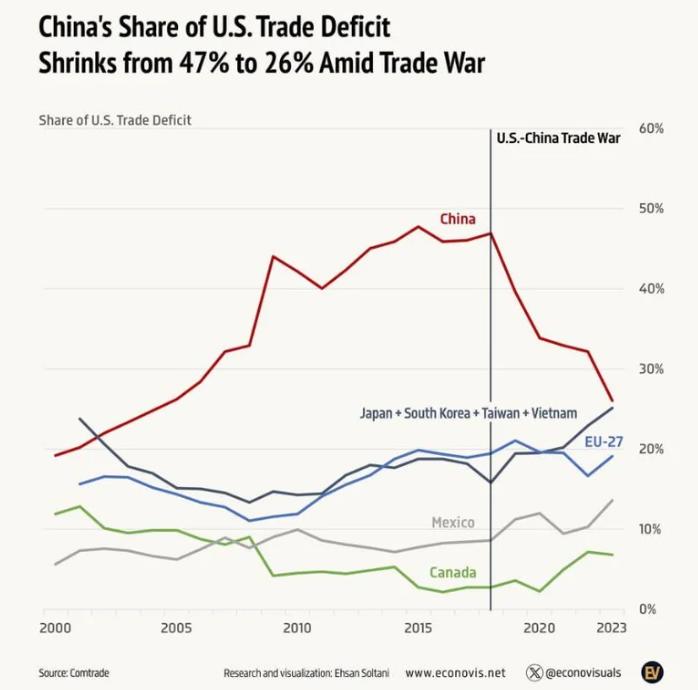
There has been a lot of noise around the US tariffs on Chinese goods. Anyone fluent in economics knows tariffs are a negative overall.
But, the policy objectives here were clear. US tariffs on China were much more about shifting trade away from China. A prime example of politics influencing economic policy.
It would appear the US Gov objective of using tariffs to reduce the trade deficit with China (by shifting it to other countries who are more friendly, like Vietnam or Mexico) appears to be working.
The goal was never to reduce the trade deficit globally, it was to reduce it with China.
China’s trade manipulations will devastate us — it’s time to fight back
A tidal wave of cheap Chinese imports floods the national market.
Industries reel, companies crumble and factories close their doors for good.
The livelihoods of countless families disintegrate.
This could be a description of the original “China Shock,” the long-term result of the United States’ policy of “free trade” with China, which cost America 2.4 million jobs between 1999 and 2011.
But it also describes what countries across the globe are facing right now: a massive glut of vital industrial inputs and high-value goods, courtesy of Chinese overproduction.
Just look at Latin America, where a sudden inundation of Chinese imports has dragged Brazil’s chemical industry to its lowest point on record and driven Chile’s sole remaining steel mill out of business.
Look at Asia, where India and Vietnam are investigating a variety of market disruptions.
Or look at Europe, where UK machinery manufacturers have been forced to sell their products at a loss and Chinese-made automobiles have seized a third of the EU’s electric vehicle market in less than five years.
nypost.com/2024/09/19/opinion/chinas-trade-manipulation-will-devastate-the-global-economy/
h/t ProfessorOfFinance
Views: 108